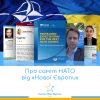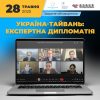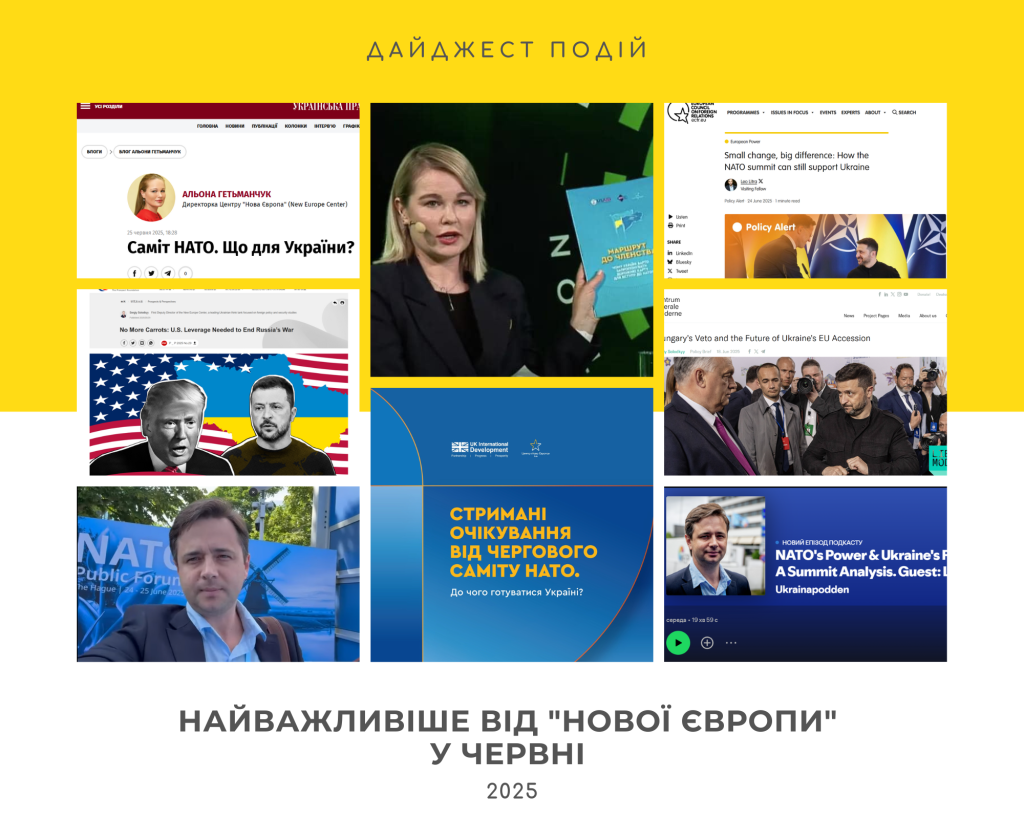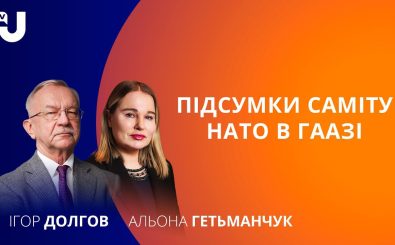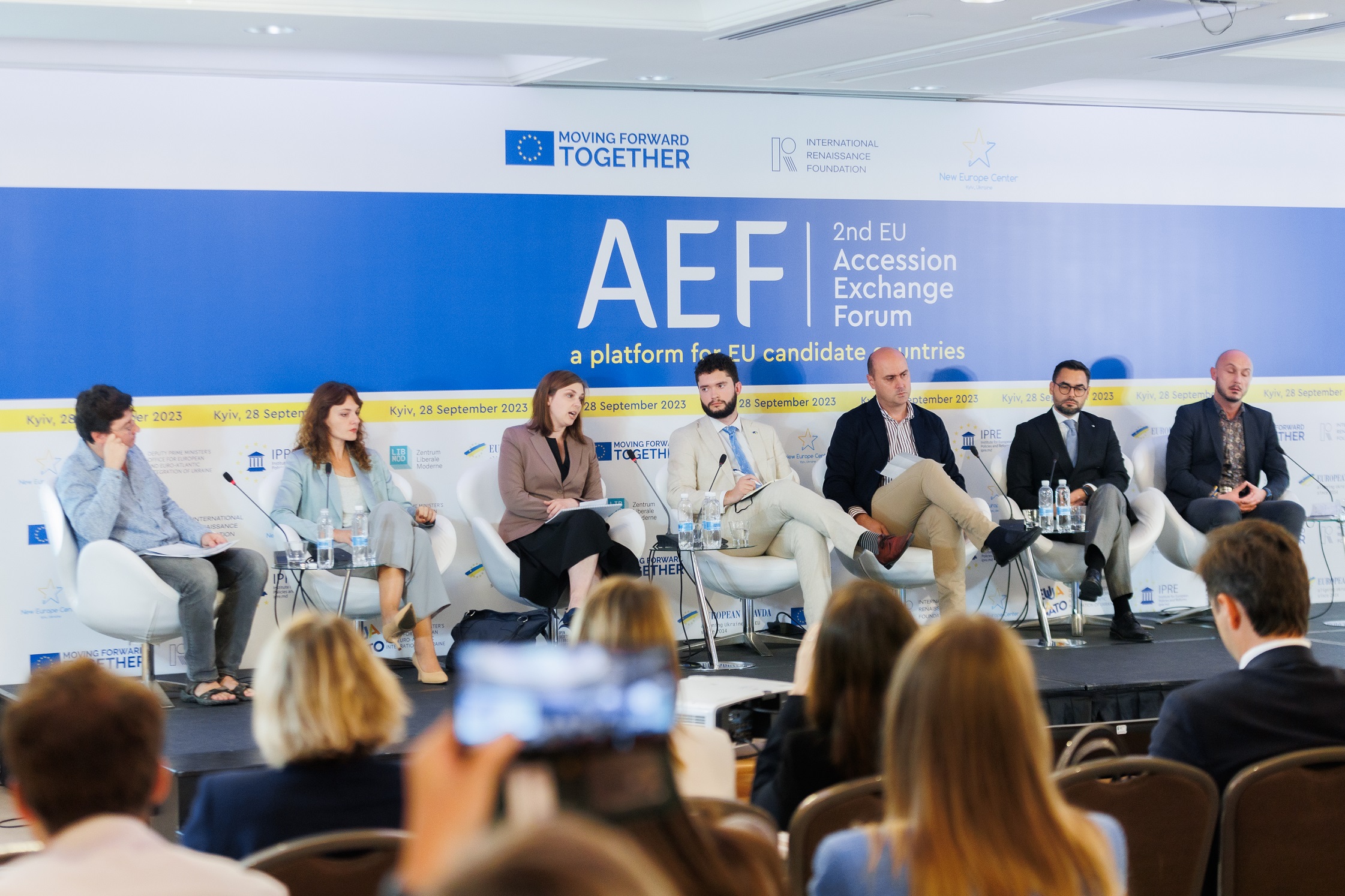
We bring to your attention the key messages of the speakers from the Session “Preparing for membership — reforms in the candidate countries: what now? What next?” of the 2nd EU Accession Exchange Forum.
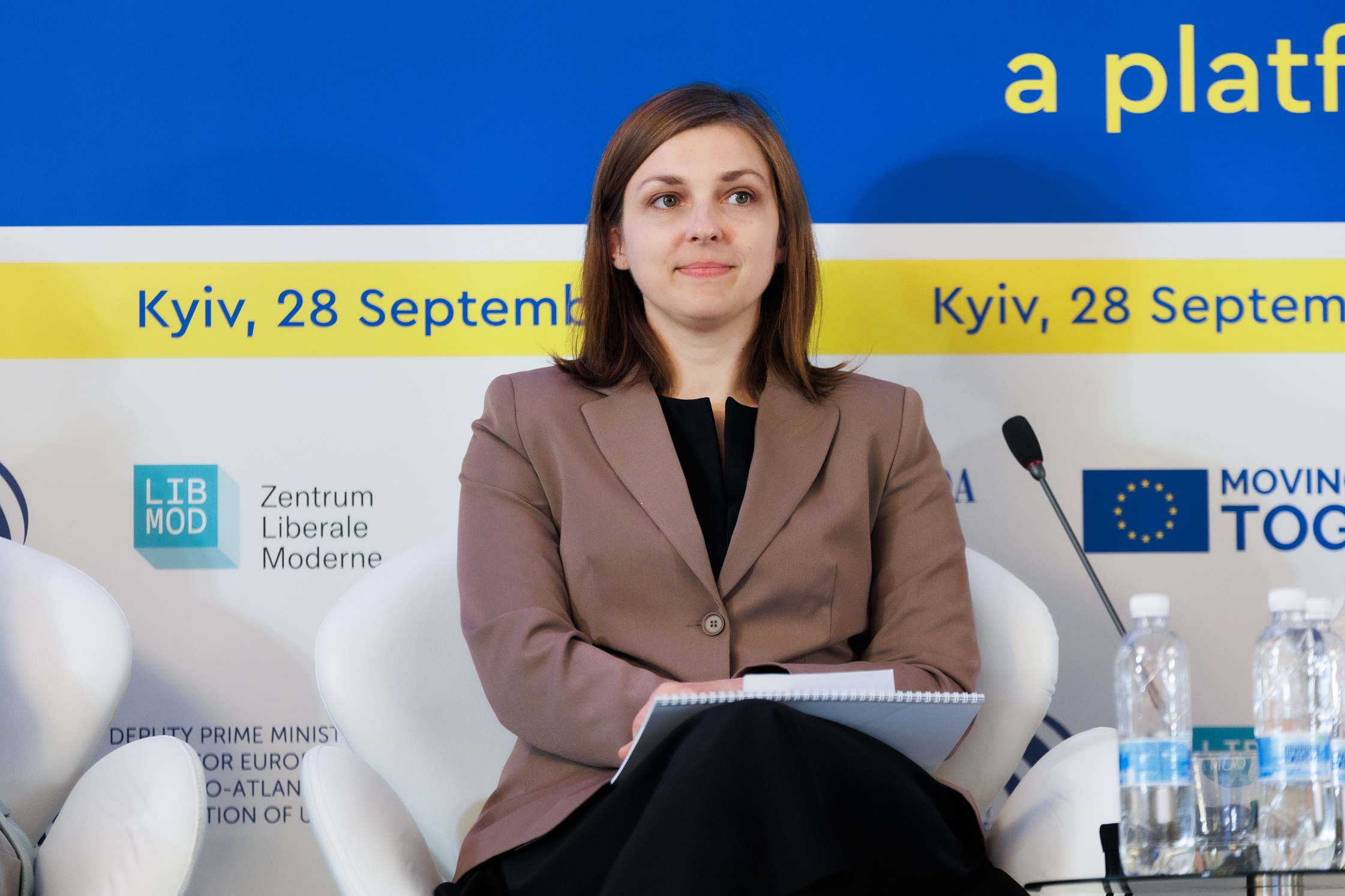
Olena Halushka, Board member of the Anti-Corruption Action Center, Ukraine:
- Indeed the EU candidate status with the reforms list was probably the most effective leverage and tool for reform advocacy that Ukraine could have had. A lot of the reforms wouldn’t have taken place without this EU push.
- It is important that civil society is more actively engaged in shaping, defining those conditionalities and monitoring, like Candidate Check.It was a very useful tool not only to keep Ukrainian authorities mobilized but also keep wider international partners informed about the dynamics.
- Regarding 2030 the Ukrainian civil society definitely will use the leverage of the EU accession to make the Ukrainian government do the reforms. But also we understand we will need to make some advocacy in the EU. EU accession will take some time. If we speak about recovery, sustainable economic growth, return of the refugees, investors coming to Ukraine – they won`t come without a sustainable security guarantee. So the EU accession should go together with NATO accession. And NATO accession should be much faster.
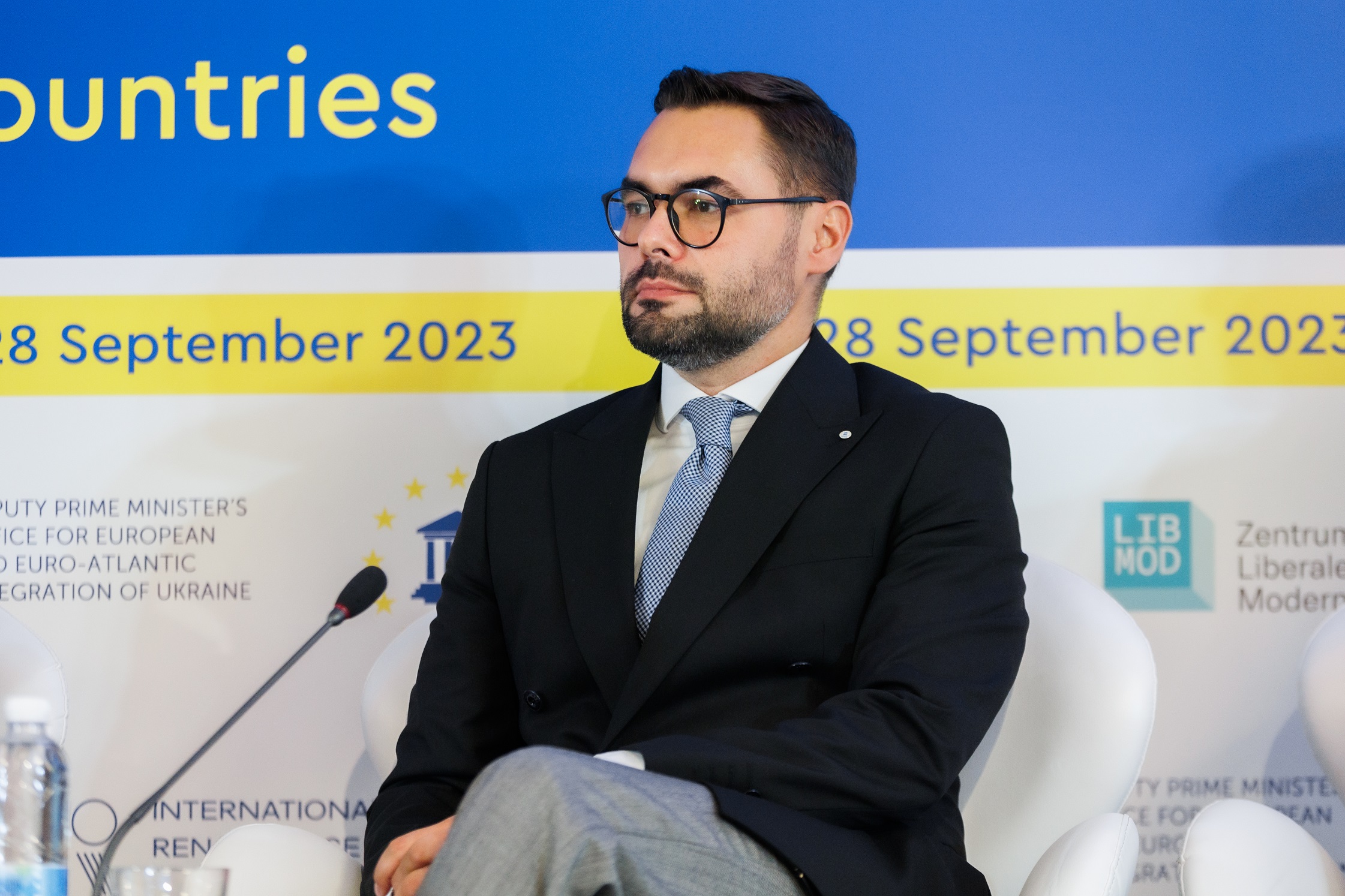
Iulian Groza Executive Director of the Institute for European Policies and Reforms (IPRE), the Republic of Moldova:
- There’s a clear lesson learnt that you cannot advance without democracy as well as without security. Building up institutions, strengthening resilience, addressing security threats is as important as preserving democratic and rule-of-law processes.
- At the beginning of this European Commission there was a statement that there would be no enlargement until the end of this EC. At the end of this Commission we hear that there is an ambitious goal for 2030 for the countries to be ready to join the EU.
- Looking into the previous wave of enlargement there were 4-6 years of negotiations before membership. And 2023-2030 time frame looks realistic to complete the accession negotiations.
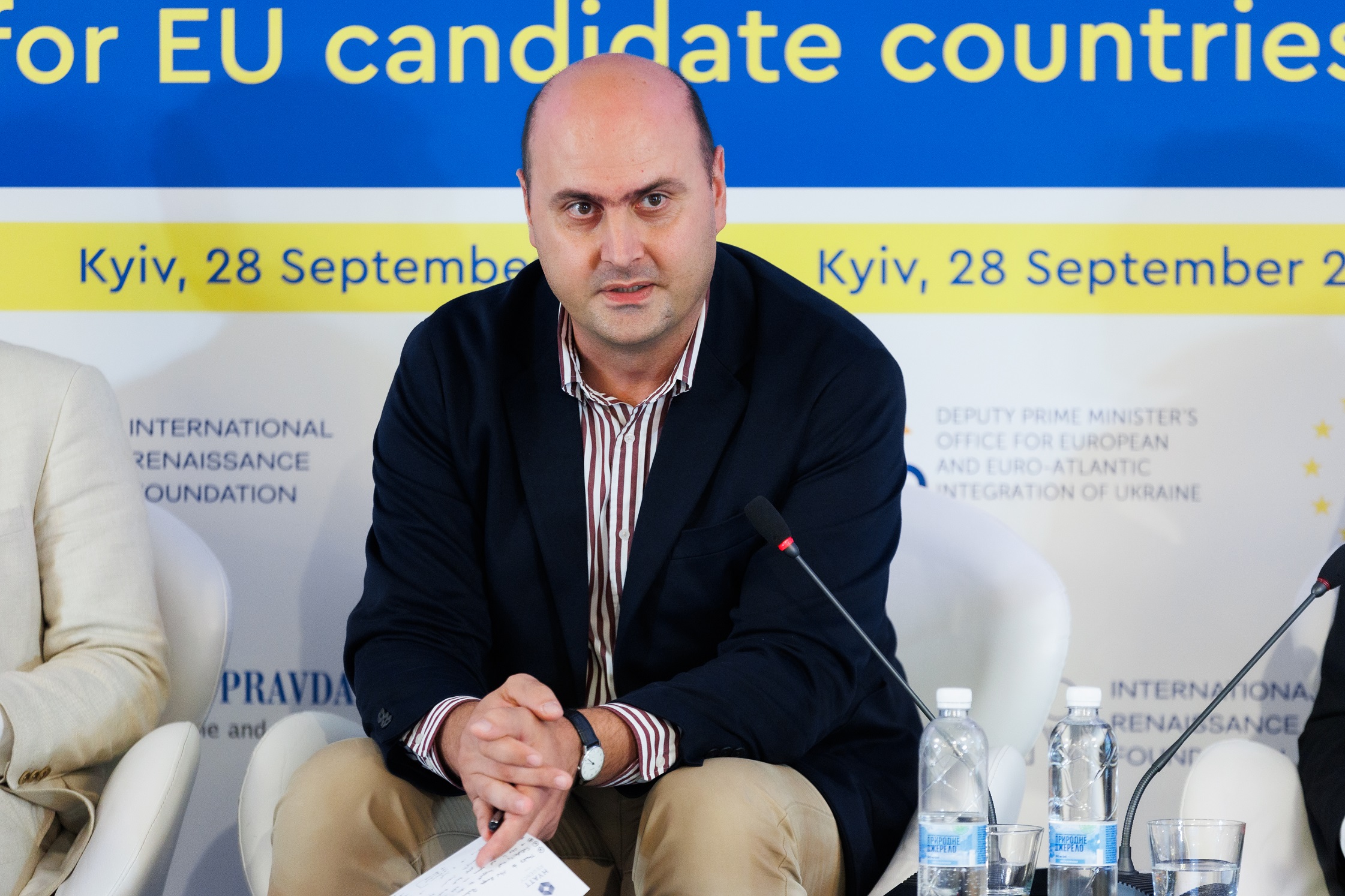
Ivane Chkhikvadze, EU Integration Program Manager at Open Society Foundation Georgia (OSGF):
- One thing I would say is never make the predictions of any country’s future with regards to the EU enlargement.
- Three-four years ago there was a discussion about the enlargement. And in the previous report it was said that at least two Western Balkans countries will join the EU by 2025. Now it’s mostly the prior year and now it is not really possible to see two countries or at least one to join the EU.
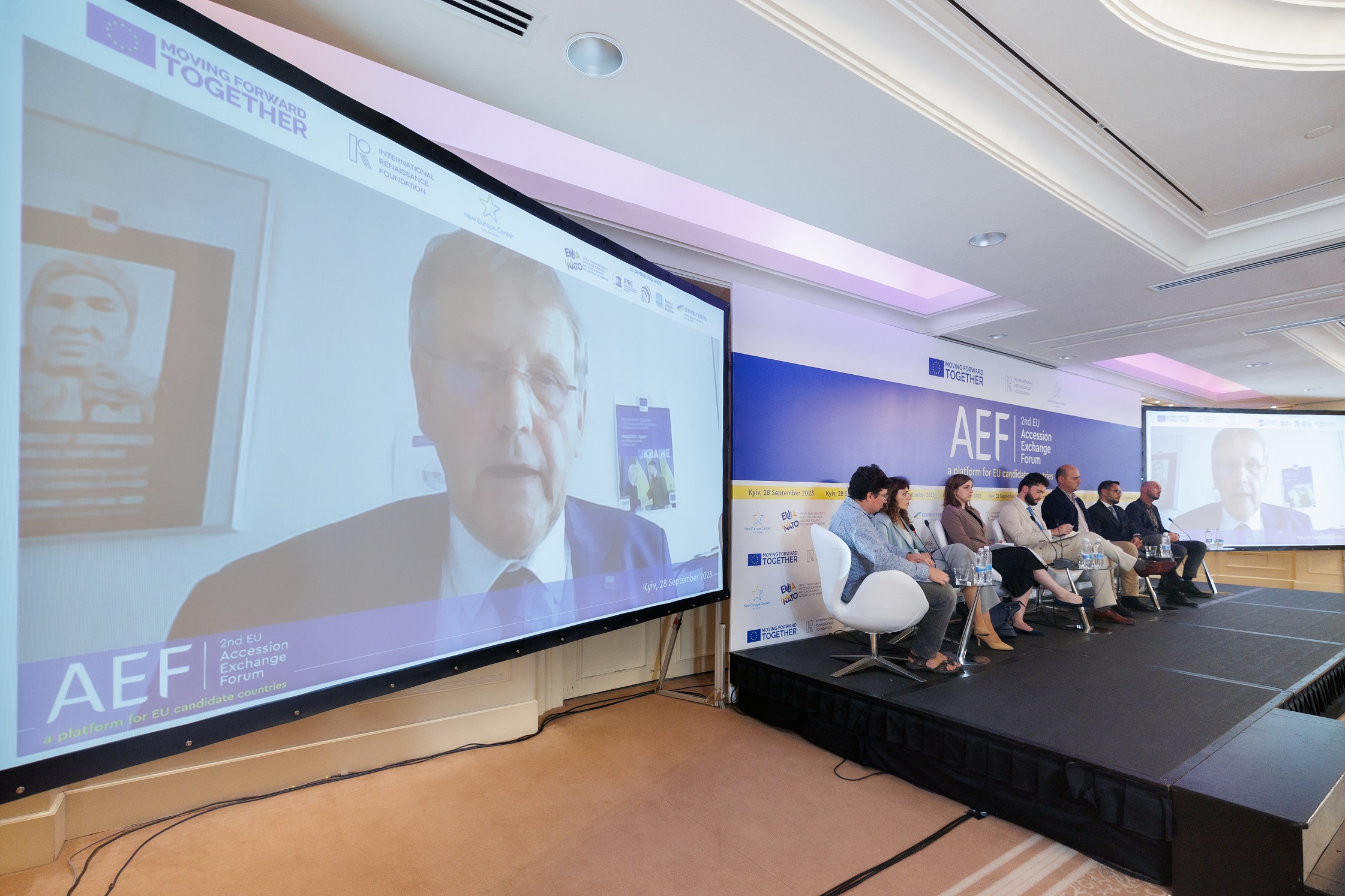
Georg Ziegler, Deputy Head of the Support Group for Ukraine, European Commission:
- You were very quick in Ukraine with the questionnaire, we were very quick with producing the opinion, and now as the process goes on we try to be in this positive ping-pong. We are actually in almost daily contact with Ukrainian experts and also at the highest levels from the President to the Deputy Prime Minister with our Commissioner and Director General.
- Tremendous efforts have been done, we are still fine tuning certain things and we always set it very clearly from the top level that if we consider that the seven steps are fulfilled, we will recommend opening the accession talks.
- I think that the more objective we are as European commission, the stricter we are, the higher are then the chances that we are convincing, the recommendations will be treated seriously and it will lead to the final result which is opening of accession negotiations.
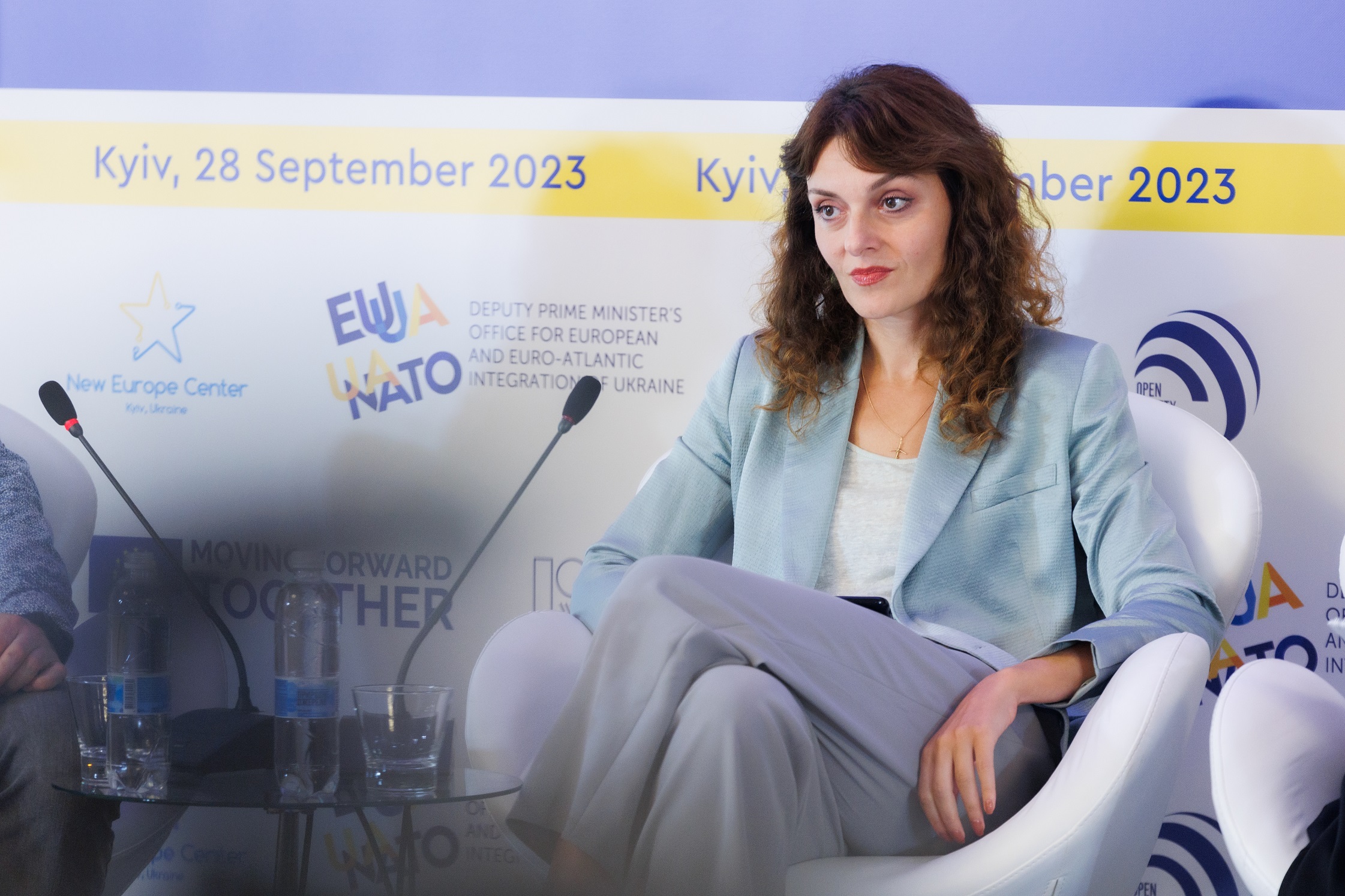
Nona Mikhelidze, Senior Fellow at Institute of International Affairs (IAI), Italy:
- Regarding 2030 the EU enlargement: I don’t disapprove of setting deadlines because they are making push to the accession process.
- Over years the EU created the narrative towards Georgia portraying the country as a success story and a frontrunner in the Eastern partnership program. So now the EU finds itself in quite an awkward situation when it has to make a choice between geopolitics and democracy. It has to deal with unintended consequences of its failure in its democracy support in Georgia.
- By giving a priority to stabilization rather than to the promotion of democracy we ended up in a reality where Brussels as Europe is in front of the choice that if it doesn’t grant Georgia with the status Russia will profit out of it and strengthens it influence. But if the status is granted the European credentials will be out under question mark because out of 12 foundations Georgia satisfies only three and there is no way that it will meet other nine in a month that’s left.
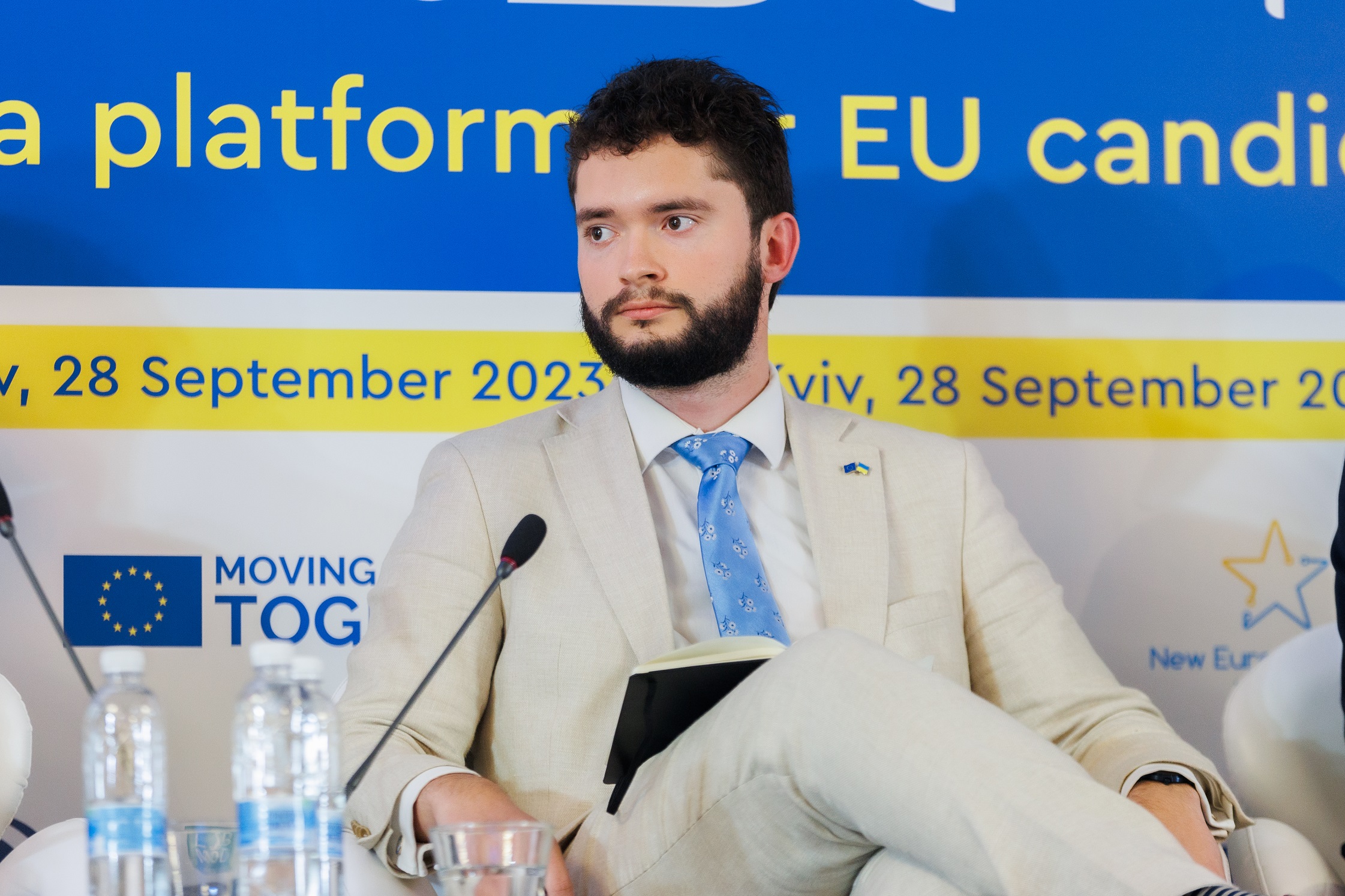
Teun Janssen, Academy Fellow, Clingendael Institute, the Netherlands:
- In my opinion there are three more things regarding 2030 the EU enlargement: participation of NGO`s; getting in touch with intros groups; capacity building, which relates both: trainings and practicing technical negotiations.
- The accession negotiations are not really the negotiations. It’s a very technical process, a trust building exercise. So if you want to get on that EU accession train you need to pass all the stations and get yourself technically ready.
- The difference between the political and technical negotiations is that the engaged institutions will be different from those of the commission working groups. And here what’s important is the cultural alignment – if the negotiation culture of the acceding countries matches the one of the European commission. So the more cultural alignment you get, the more successful negotiations will be.
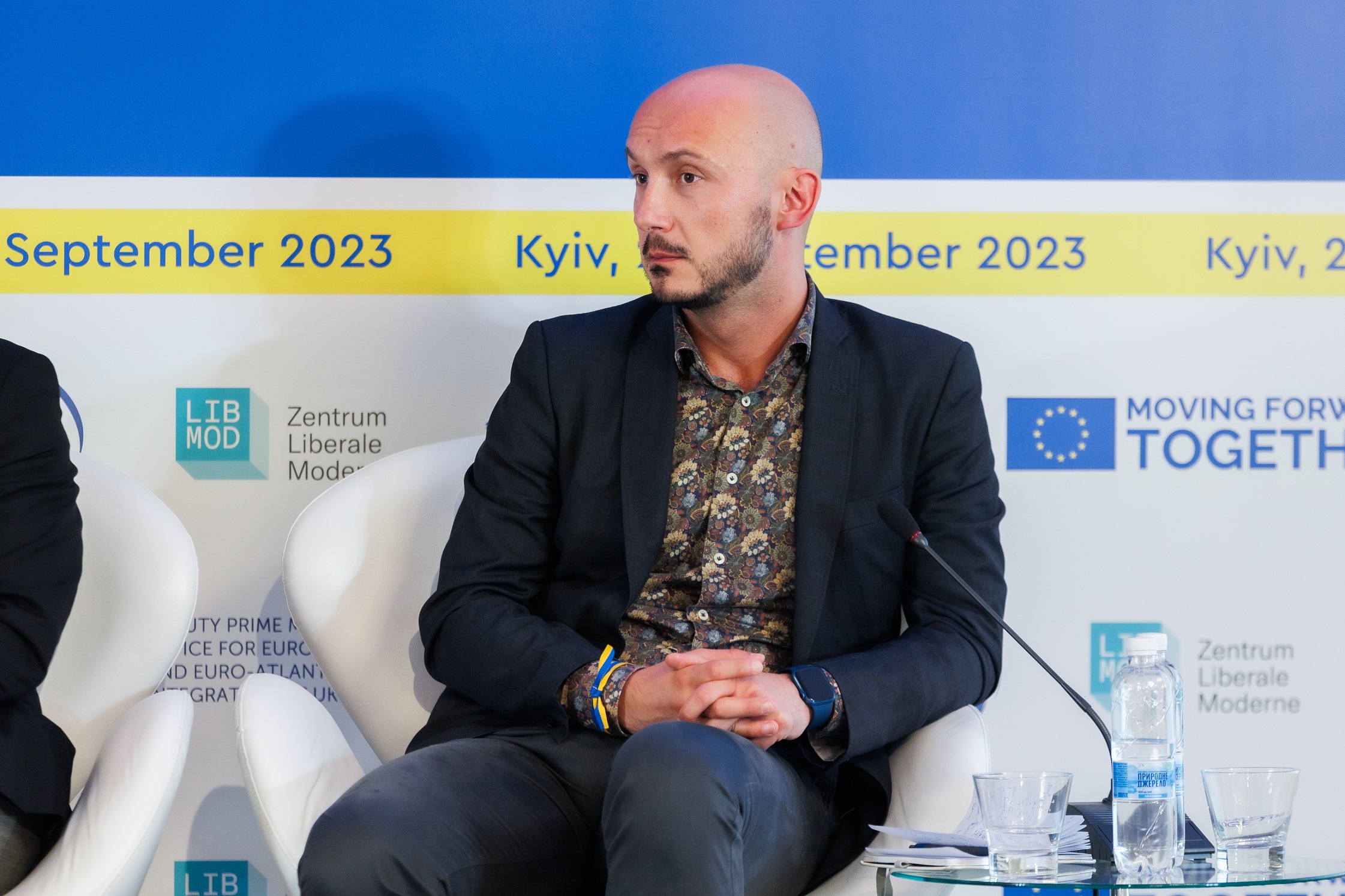
Bojan Elek, Deputy Director of the Belgrade Centre for Security Policy:
- Whenever a European official comes to Serbia he brings two messages: you need to introduce sanctions against Russia which is a part of aligning foreign policy with the EU and which Serbia refuses to do. And second, you need to continue normalization of relations with Kosovo.
- The pro-European people and forces in Serbia are getting less. Public opinion polls show that for the first time ever two years ago there was less than 50% support for the EU and it dropped even lower with the start of the war. And according to the polls six months ago more Serbs would be concerned if Serbia introduces sanctions than if the country abandons its European path. So, this is very disturbing.
- It’s very important to keep democratization on the EU agenda.
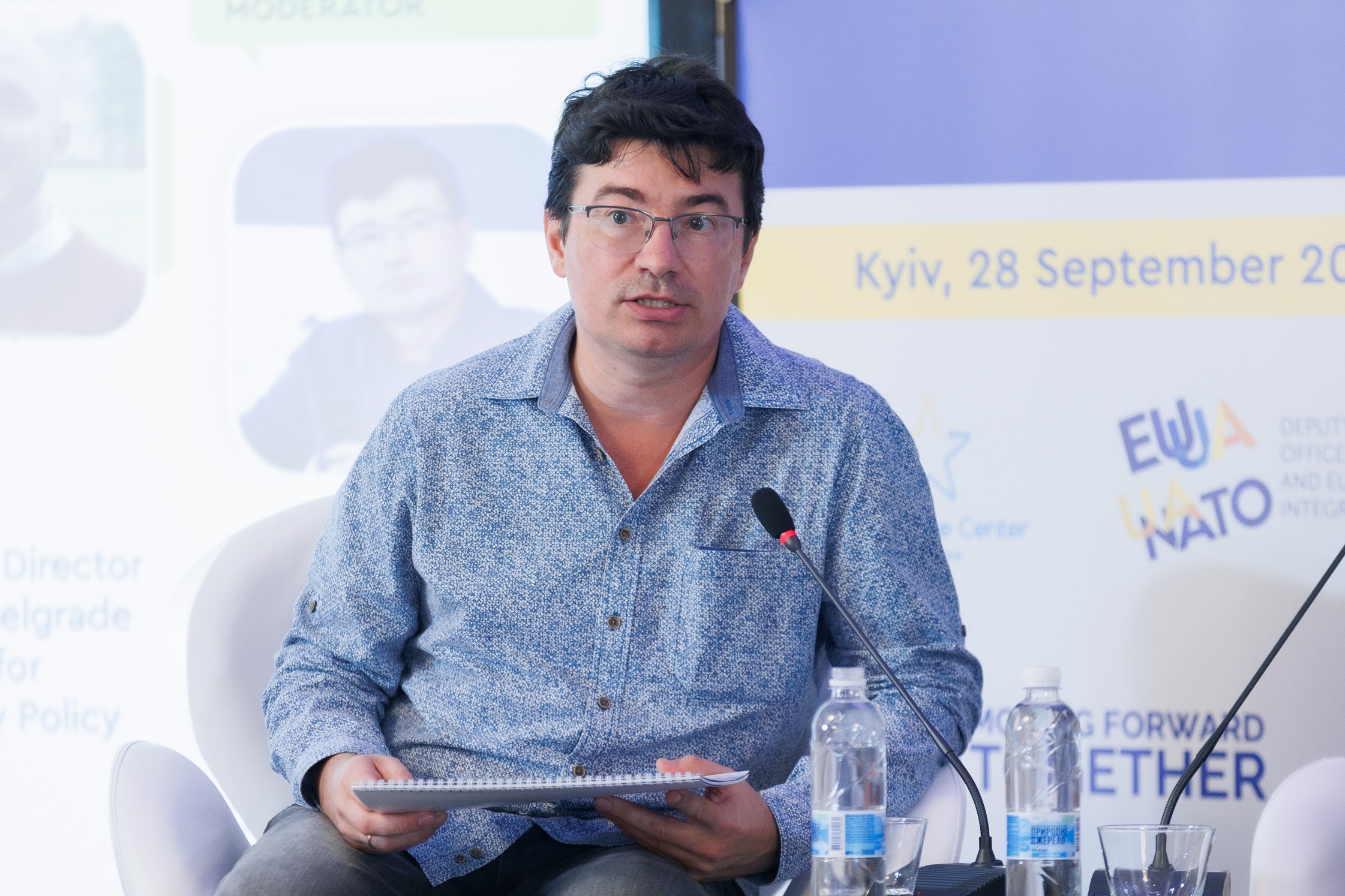
Kindly moderated by Sergiy Sydorenko, Editor of the European Pravda, Ukraine.
Video recording of the Forum is available here.
The EU Accession Exchange Forum is organized by the New Europe Center in partnership with the Office of the Deputy Prime Minister of European and Euro-Atlantic Integration of Ukraine, the International Renaissance Foundation, the Institute for European Policies and Reforms, the Soros Foundation in Georgia and the Center for Liberal Modernity, Germany. European Pravda became Forum media partner. The Accession Exchange Forum is taking place with EU support, within the EU-funded “European Renaissance of Ukraine” project implemented by the International Renaissance Foundation.



